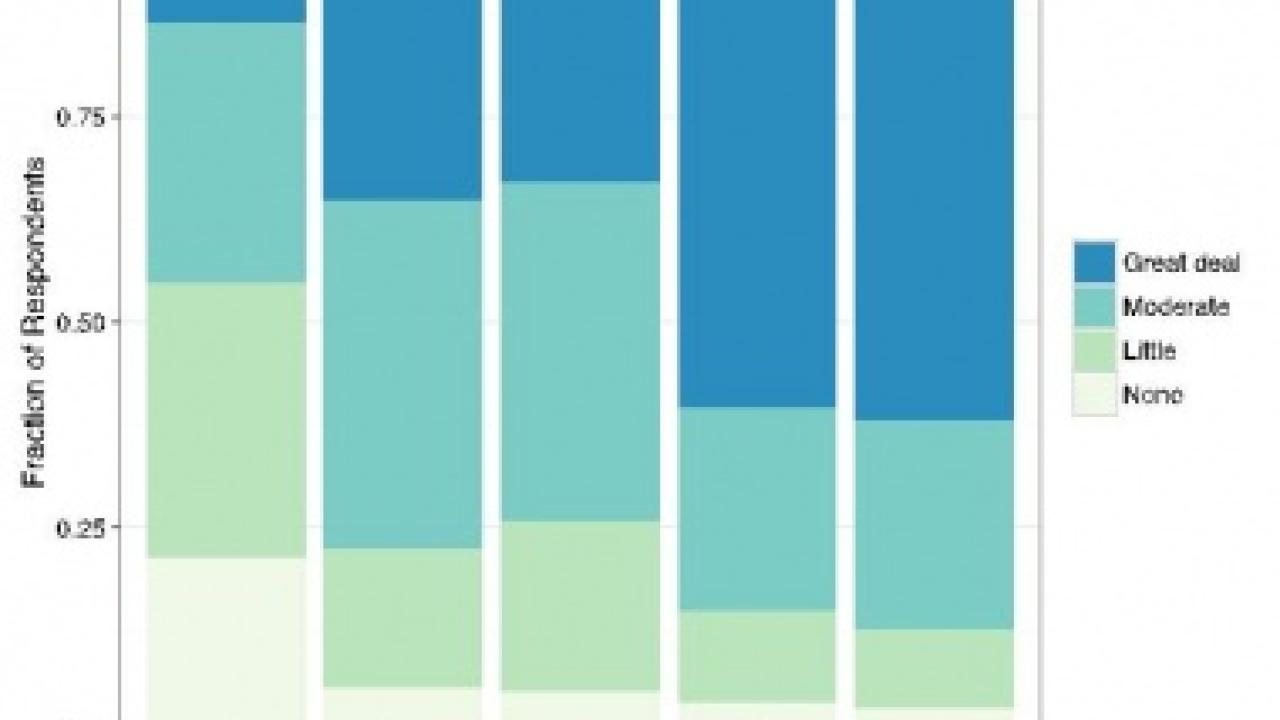
Policy Brief: Citizen Perceptions of Sea-Level Rise
Introduction
Our new policy brief reports some initial results from a household survey of SF Bay residents regarding their perceptions of sea-level rise and floodrisks, as it relates to various types of political behavior such as voting for Measure AA.
Issue
Sea-level rise is one of the most important climate change issues facing the San Francisco Bay Area (Griggs et al. 2017) and other coastal communities across the world (Hauer et al. 2016; Meehl et al. 2005). Civic engagement and citizen awareness of sea-level rise is a key challenge to effective adaptation (Lubell 2017). Many citizens view sea-level rise as a psychologically distant, “slow moving natural disaster”, which is not a salient public issue. The resulting lack of citizen support reduces the capacity of policy-makers to create adaptation programs and reduces the likelihood that individual citizens will adopt potentially costly adaptive behaviors. However, there is a growing awareness of sea-level rise in the SF Bay Area, as evidenced by the recent passage of ballot Measure AA to fund the San Francisco Bay Clean Water, Pollution Prevention and Habitat Restoration Program. This policy brief summarizes the initial findings from a household survey of SF Bay Area citizens to understand how their perceptions of sea-level rise relate to their overall support for Measure AA, which has implications for future ballot measures and other adaptation policies.
Key Findings
Sea-level rise is psychologically distant concept; the majority of SF Bay residents think it will not harm them personally, while the most significant harm is for future generations and developing countries. People are more likely to support measure AA if they perceive more harm from sea-level rise, of if they have a high subjective perception of sea-level rise flood risk. However, objective flood risk based on zip-code level hydrodynamic models appears to have little influence on support for Measure AA except among more politically sophisticated respondents. This highlights the importance of understanding the origins of sea-level rise risk perceptions, which are a function of both geography and individual psychological and social factors.
Policy and Management Implications
Developing citizen support for sea-level rise and climate adaptation policy is difficult in the short-run because most citizens do not see an immediate personal harm, in comparison to harm in the future or in other countries. Linking sea-level rise policy to more salient environmental issues such as wetlands and biodiversity is likely to increase support. Increasing awareness of the extent to which citizens are personally at risk from sea-level rise may also increase support, although the characterization of that risk should go beyond the individual household location. At least for some citizens, even if there is flooding in their community, they may not vote to support costly adaptation policies. Hence, it will be important to characterize risks from flooding such as decreasing availability of transportation, loss of power/water, and other vulnerabilities that are not linked to the specific physical household.

Disqus Comments